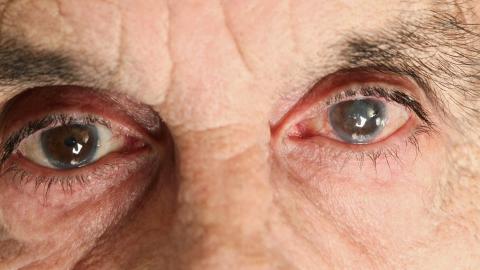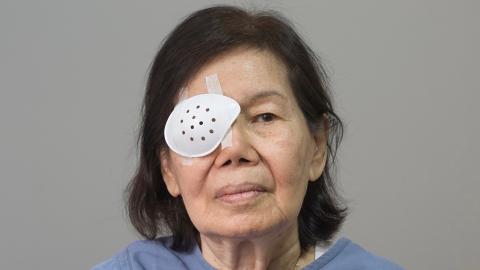
What to Watch Out for After Cataract Surgery?
If the underlying cause of blurred vision is cataracts (cataracta), the only treatment option is surgical intervention. During the procedure, the cataract-covered part is removed, and an artificial lens takes over its original role. However, a successful operation is just the first step of a successful intervention. Let's review what patients need to pay attention to. What should we watch out for after cataract surgery?
Cataract surgery is performed under local anesthesia. The procedure involves making two small incisions in the eyeball, through which the clouded lens's inner material is removed. Then, an individually designed and shaped artificial lens is inserted into the outer capsule of the lens, where it permanently remains inside the eye.
What to Expect After Cataract Surgery?
On the day of the surgery, vision may still be blurry, but it usually clears up completely a few days later. The outcome of the procedure depends on the general characteristics of the eye, the surgical technique used, and the type of implanted artificial lens (with the most modern multifocal lenses, vision problems can be completely eliminated, and the need for glasses or contact lenses can be dispensed with).
If the vision impairment was extremely severe before the surgery, or if there is glaucoma, age-related macular degeneration, or diabetes in addition to cataracts, it may still be necessary to use glasses/contact lenses after the surgery.
If cataracts affect both eyes, the surgery on the other eye can be scheduled no earlier than one week after the previous operation – or later.

What to Watch Out for After Cataract Surgery?
In order for the cataract surgery to be successful and for the vision improvement to be long-lasting, it is important to adhere to the following precautions and restrictions:
- Attend the scheduled follow-up exams – one day, one week, and one month after the surgery. This is when the eye pressure and wound healing are checked.
- Fill the prescription for eye drops prescribed by the treating doctor and use them as directed in terms of frequency and quantity throughout the recovery process.
- During the healing period, even in the case of itching, the eye should not be rubbed or pressed.
- All sports activities should be avoided for the first week after the surgery (activities involving more serious exertion, straining, sauna visits, and swimming can be considered one month after the operation at the earliest).
- Avoid dusty places, serious physical strain, and lifting weights exceeding five kilograms.
- Watching TV and reading are allowed, but it is advisable to avoid driving for a few days until the eye fully adjusts to the new condition.

Complications can occur in any surgical intervention – the chance of this happening in cataract surgeries is minimal. If you experience any problems after the operation, immediately notify your treating doctor to minimize the chances of complications developing.
Are you preparing for cataract surgery? Consult us with confidence!
The ophthalmology specialists at UDyouMED have decades of clinical experience and are ready to assist patients in all areas of ophthalmology. They help find solutions to common and rare ophthalmic problems and answer any questions related to the specific disease or necessary surgical intervention.